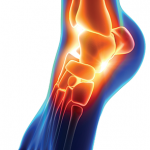Another of Dr. Davis’ strengths as an EIC is his background in academics, Dr. Ramos-Remus adds.
According to Dr. Davis, this perspective allowed him to empathize with the authors who submitted work to the journal. “I think [my academic background] helped a great deal because I started off as a clinical and then laboratory investigator years ago when I first got into academic medicine,” he explains. “That gave me a good background into the scientific process, how to undertake studies, how to write grants, how to write papers. … I think that an academic background gave me quite a bit of insight into the issues that authors face when they’re submitting papers.”
On the Horizon
In reminiscing on his years as EIC and the growth of the journal, Dr. Davis admits a sense of pride in his accomplishments. He also is quick to give credit to the team who helped make the journal a success over these past eight years.
“I think the editor-in-chief does have an important and critical role, and obviously is the person who sets the mission and direction of the journal, and so I must say that I take some satisfaction from having had that role and being successful,” he says. “It could have been a failure! It wasn’t, fortunately, but in some ways, we made some policy decisions that some people thought might not be the right way, but I think it turned out to be the right way. I certainly take some satisfaction in being the ‘captain of the ship,’ if you like, but certainly this has been a team effort.”
Retirement from Clinical Rheumatology is not the end of the road for Dr. Davis, who intends to continue working in his postretirement teaching position at the University of Alberta. Although he had many opportunities to travel around the world in his work on the journal, he also intends to take advantage of “a little less hectic schedule” to perhaps do a bit of traveling in the future—just for fun.
Kimberly Retzlaff is a medical journalist based in Denver.

